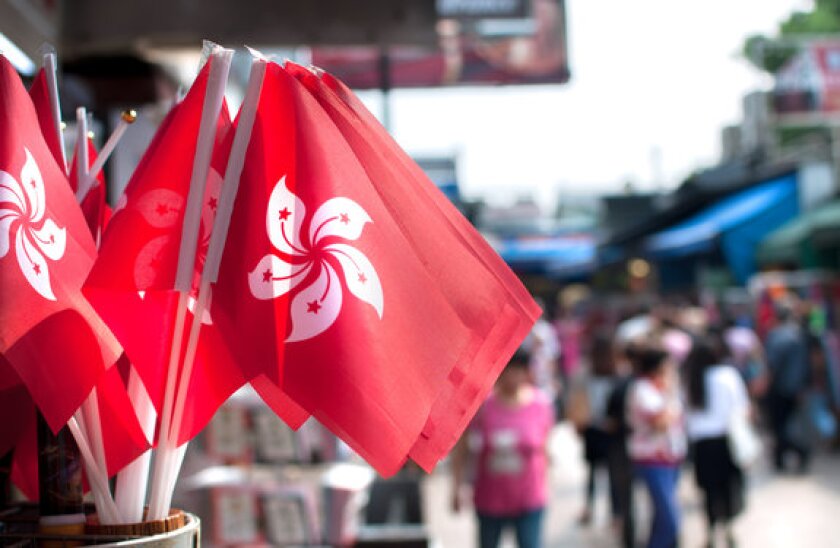Hong Kong has long maintained that it is an independent global stock market, despite increasing reliance on deals from Chinese companies that contribute the majority of ECM activity on the bourse. But Ant’s $34bn IPO flop has tested those claims. The results paint a different picture.
The ties between Hong Kong’s and China’s stock markets have strengthened on multiple fronts in recent years, be it through the stock connects with Shanghai and Shenzhen, the flood of Chinese IPOs on the HKEX, or the increasing trend of dual-listings across the A-share and H-share markets.
Regulators and exchanges on both sides of the border frame these developments as partnerships: a mutually beneficial meeting and a natural co-operation between two markets.
The reality is, however, starkly different, with Ant — which pulled its jumbo dual listing in Hong Kong and Shanghai’s Star market last week — shining the spotlight on the relationship between the Hong Kong and China capital markets.
The end of the Ant saga was perhaps most telling. The decision to derail what was set to be the largest IPO ever began with regulators in Beijing, who hauled in the company’s senior management, including founder Jack Ma. The Shanghai Stock Exchange subsequently suspended the listing.
Hong Kong’s bourse was given no warning of the move.
In response, the HKEX’s listing committee scrambled to hold an emergency meeting on the night of November 3, hours after the SSE’s announcement and just two days before Ant’s H-shares were scheduled to begin trading. Ultimately, Ant said that it too had decided to halt the Hong Kong listing.
For those close to Ant’s listing process in Hong Kong, this mirrored the “collaboration” between Hong Kong and Shanghai throughout the development of the transaction, GlobalCapital Asia understands. Despite the deal being a dual listing via concurrent H-share and A-share IPOs, the team at the HKEX was more often than not left in the dark.
There has been plenty of speculation on what triggered the last-minute cancellation, with some pointing to ill-timed comments from controlling shareholder Ma last month, as well as simply fear among China’s regulators over the company’s meteoric rise and its hold on the country’s financial markets.
There are plenty of losers and winners, as GlobalCapital Asia wrote in an opinion piece last week. But the listing deals a severe blow to the HKEX on numerous counts.
Hardest hit is its hope that Ant’s success would encourage similarly structured deals to follow, while offering a big gain in market volume and activity to the bourse. More importantly though, the episode has raised questions about how independent of China’s regulators the bourse really is, and whether it still holds appeal as a listing venue for international companies looking for a foothold in Asia.
Admittedly, Ant is a one-of-a-kind company and its situation unique. High-profile repeats in the city’s IPO market would be rare. But the seeds of doubt about the HKEX have nevertheless been sowed. International market participants should beware.

